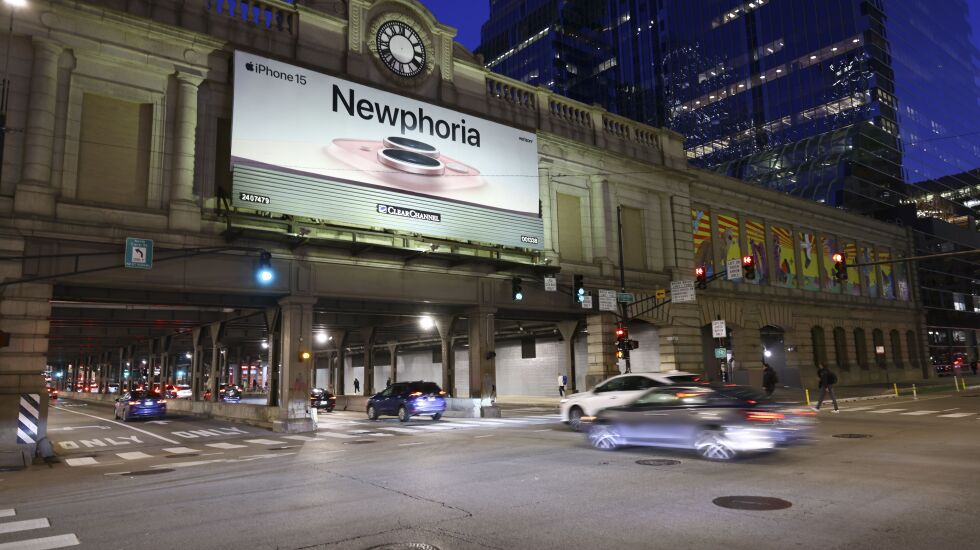
City Hall and the Chicago Police Department have to make curbing crime a priority, whether it’s in the West Loop or West Garfield Park.
Mayor Brandon Johnson’s administration seems to have lost sight of that, even after a 59-year-old man was shot and killed early Thursday near a crime-ridden tent encampment in the vicinity of Lake and Clinton streets.
Local alderpersons say the camp no longer is a peaceful refuge for homeless individuals but rather an open-air drug market that has sparked a series of violent crimes. Overt drug dealing has been going on, even during daylight hours as commuting pedestrians from the Green Line and the Ogilvie and Union train stations hurry by.
In Friday’s Sun-Times, Mary Norkol and Isabel Funk reported that area residents “see drug deals every day” and people “are fearing for their lives.” Conway said he walks by the encampment daily with his 4-year-old daughter and sees drug dealing in the tents.
On Nov. 30, police said they arrested a man with a gun and about $60,000 worth of heroin, crack cocaine and codeine near the encampment, another sign of the danger the encampment poses to the community. Also in November, 1,500 area residents signed a petition asking for help with the encampment.
Yet, so far, the city’s reaction has been, at the least, disappointing — just as some residents feel about the response to the spike in armed robberies around the city.
At a Thursday press conference, Ald. Bill Conway (34th), whose ward includes the site, said City Hall called off a joint mission weeks in the planning by the police, Streets and Sanitation, and the Department of Family & Support Services to clear up the camp.
The mission was aborted, Conway said, because he did not vote the way the administration wanted on two ordinances — one of which would have authorized a referendum to raise the real estate transfer tax on properties over $1 million to help pay for homeless services, and one that would end subminimum wages for tipped restaurant workers. The ordinances passed without Conway’s votes.
Conway said Jason Lee, a senior adviser to Johnson, in a personal conversation clearly spelled out the quid pro quo, which simply smacks of “the Chicago Way” at its worst. Alderpersons should not be shaken down for votes.
This was a moment for Johnson to make it clear he takes it seriously when people don’t feel safe on their blocks or in their communities. He could have clearly stated there was no place in his administration for denying city residents needed and deserved services just because City Hall didn’t like the way an alderperson voted.
Instead, when pressed by reporters about Conway’s political horse-trading complaint, Johnson essentially dodged the questions, saying in part he is not privy to every conversation in the city. That was an obvious blunder, and Chicagoans deserve better than a flip comment when public safety and quality of life is at stake.
Johnson can continue to push for such priorities as helping the homeless, but he also should be pulling out all stops to fight crime. This is no time to talk in platitudes or continue to give campaign sound bites when asked important questions.
The larger significance is Johnson faces important decisions on the city’s migrant crisis, which, as in other cities, is straining local resources and the municipal budget. The mayor and alderpersons will need to work together if they are to make headway against a big challenge. Now is not the time to be at unnecessary loggerheads.
Chicago faces other serious problems as well, and crime has been at the top of the list for many residents. Johnson’s job is to assure people he has the will to tackle it.
The Sun-Times welcomes letters to the editor and op-eds. See our guidelines.







